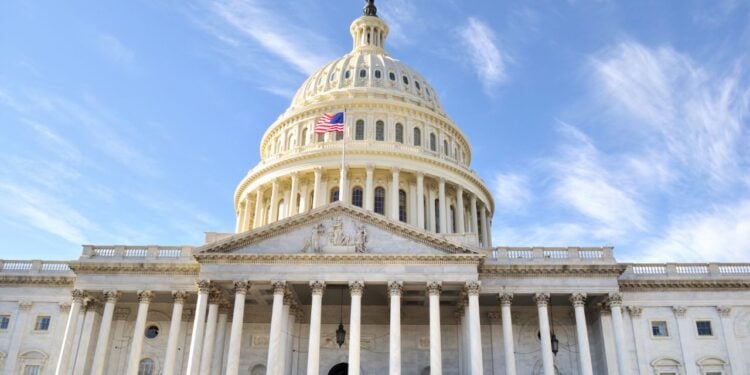The U.S. federal government might be able to save millions of dollars by downsizing underutilized office space and adopting coworking spaces, according to a recent study by the Government Accountability Office (GAO).
The agency’s recommendations, published Thursday, highlight the inefficiency of maintaining large amounts of traditional commercial office space that goes unused due to the rise in telework post-pandemic.
GAO suggests that federally shared office spaces, or coworking environments managed by government agencies, could offer a more flexible and cost-effective solution for federal agencies.
The GAO’s recommendation comes follows a coworking pilot program launched in July 2023 by the General Services Administration (GSA) launched — allowing federal agencies to share office space in six locations across the country.
These coworking spaces are equipped with Wi-Fi, private work areas, meeting rooms, and proximity to public transportation, offering government agencies an opportunity to cut costs and a convenient option for hybrid employees who require in-office work.
It’s reported that as of August 2024, nearly 1,000 federal employees from 59 different agencies have utilized these coworking spaces.
GAO report suggests the working model could help the government reduce unneeded office space while still providing the most use out of physical office spaces required by teams.
GSA officials are also hopeful that coworking will prove a viable alternative to traditional office leases, especially as more than half of GSA’s federal leases are set to expire over the next five years.
By further researching the viability of coworking spaces, government agencies could adapt to labor market trends across the U.S. More companies are adopting hybrid work environments and often this leads to downsizing or terminating traditional office spaces during new lease transitions.
The recommendations, however, also note that challenges remain. For instance, not all agencies may find the coworking model suitable due to specific security or other day-to-day operational needs, and employee preferences for greater flexibility may differ based on the nature of their work. Nonetheless, the GSA is exploring additional coworking options, including high-security coworking sites, to address these concerns.
Government agencies like the National Park Service showcase the potential of cost-savings.
“The National Park Service used the San Francisco coworking space to provide office space to its employees during a gap between leases. As a result, according to GSA, the National Park Service saved approximately $1.6 million by not undertaking a costly short-term lease extension,” according to the report.
The government “spends about $8 billion yearly to operate, maintain, and lease office space,” and a proper system for more accurately monitoring the potential cost and space savings has been recommended.
The GAO report also recommends that the GSA improve its tracking of coworking space usage and develop criteria for scaling the pilot.
















